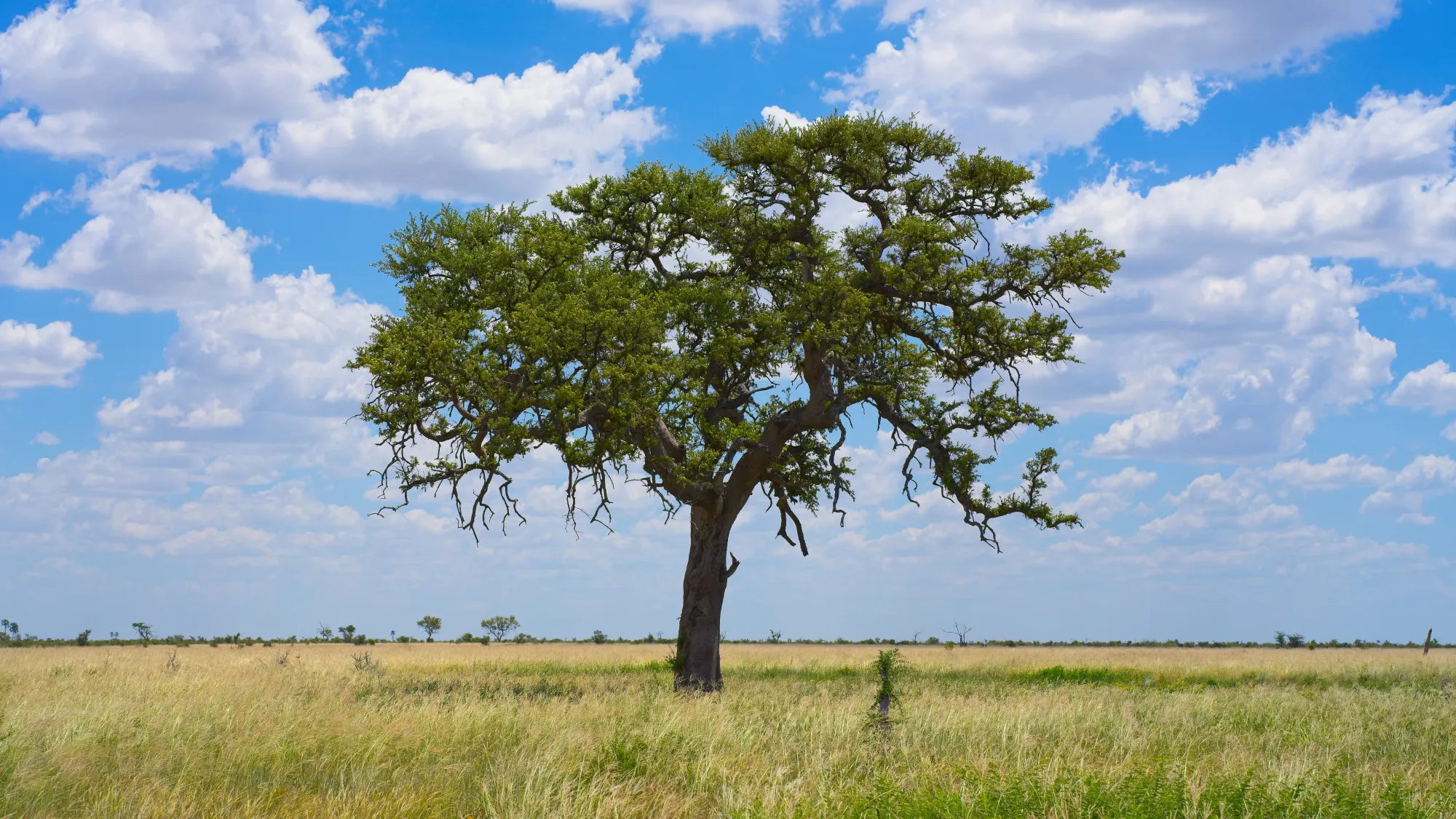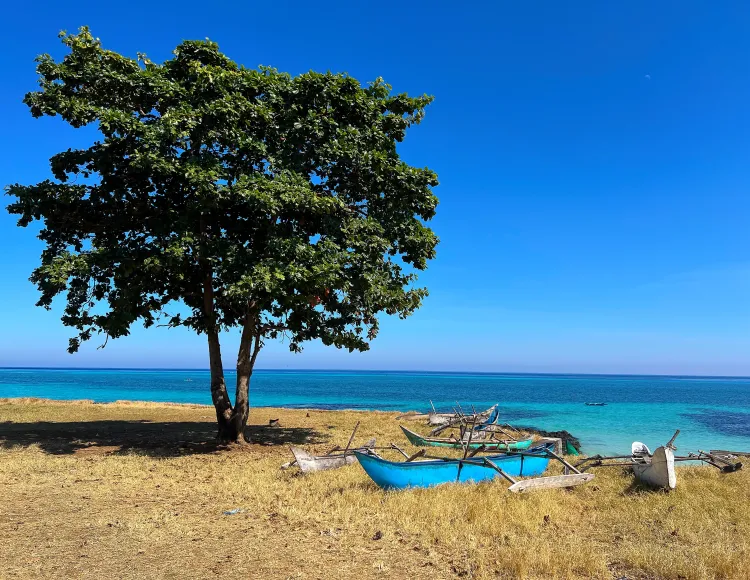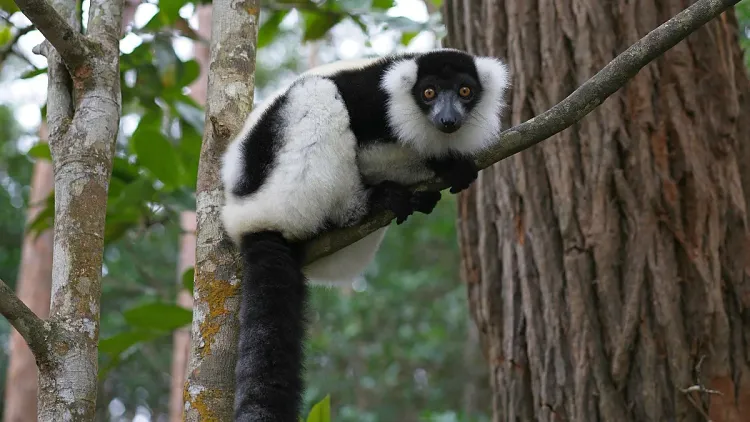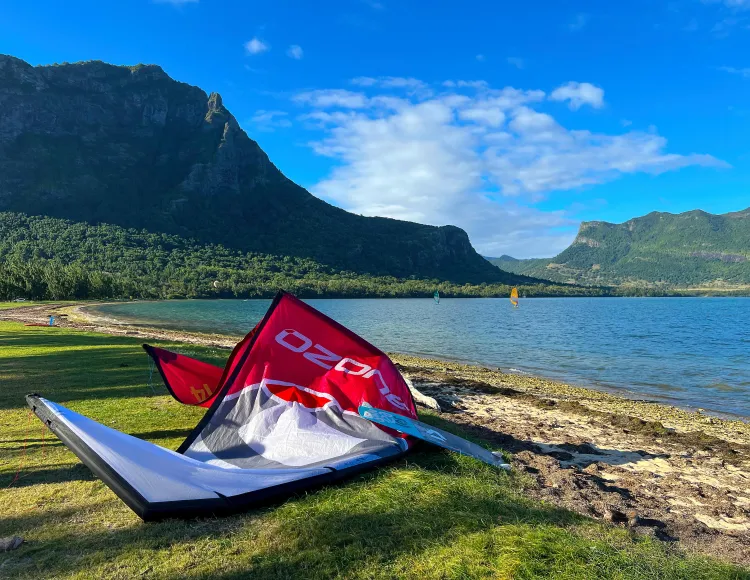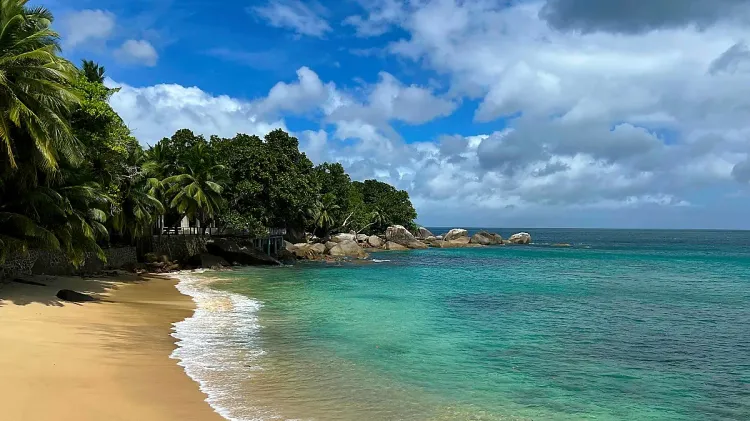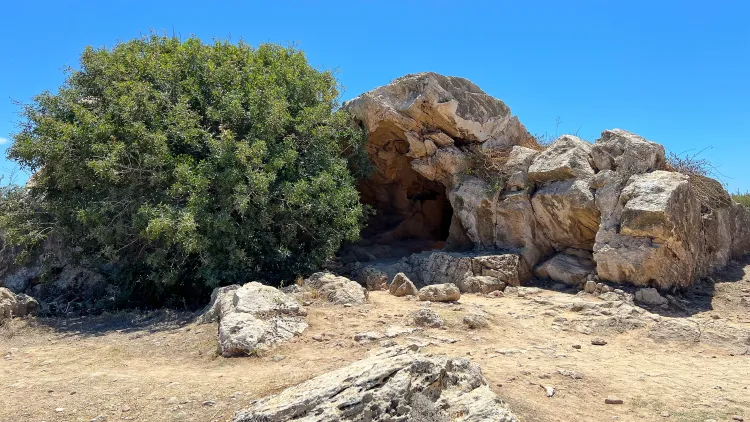Journal #55 - Botswana
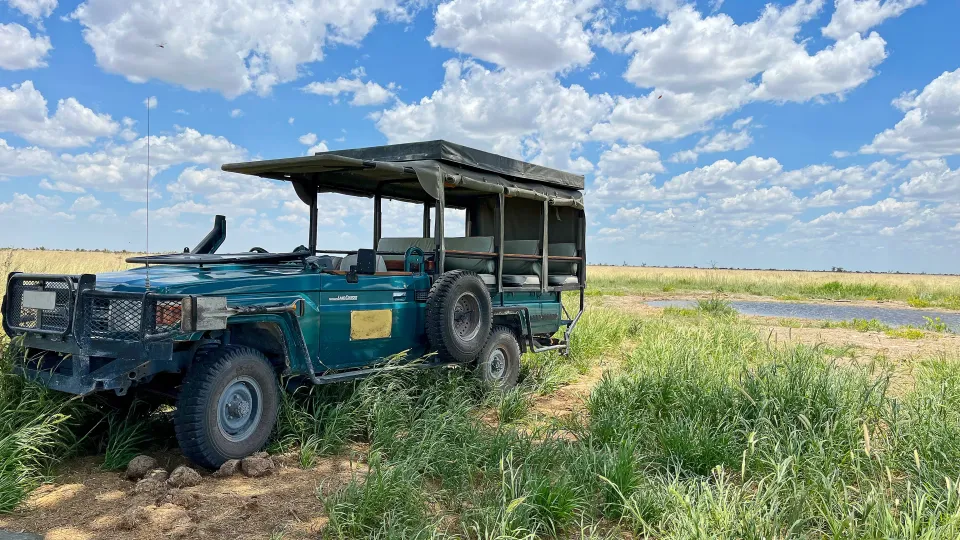
Dumelang from Botswana!
On our first morning in a safari truck, we left while it was still dark outside. We rattled down the road for thirty minutes until our guide found a path she had been looking for. The jeep tipped off the edge of the pavement and into the dirt, bouncing through the brush and trees in a direction I could not keep track of. As the sky lightened up we broke through the branches into a meadow of knee-high grasses. They were slender blades with silver tassels on their tops. Just as we found this space the sun rose across the horizon, coating the whole glade in bright yellow light. The tassels began to glow as the dewy grasses reflected the rays. I raised my camera and the guide pulled the vehicle to a stop. In that moment we heard nothing but a few birds warbling amidst the trees. It was one of the most peaceful spells we have experienced on this trip and was the perfect way to start our first true safari game drive.
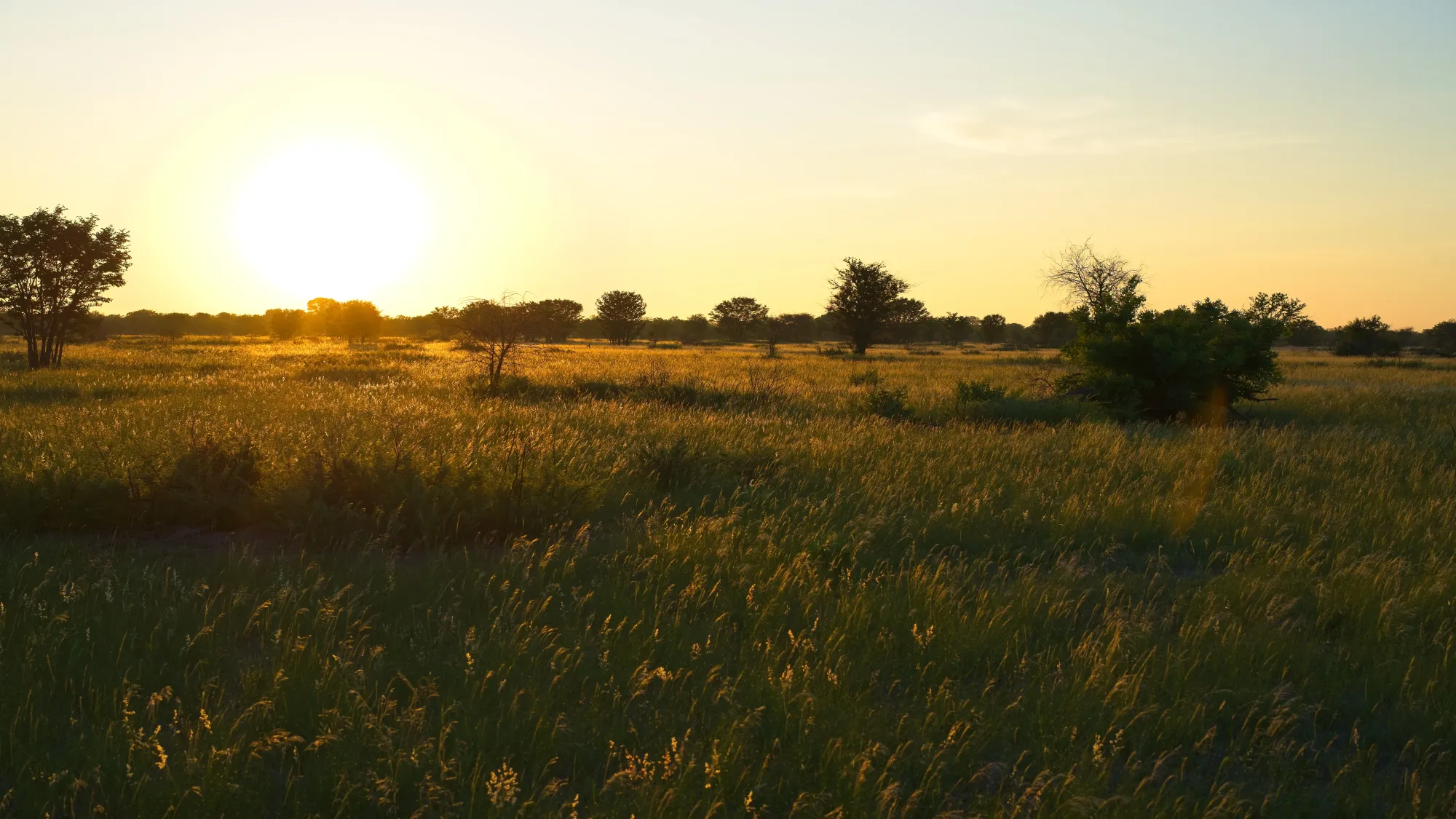
That is why we have come to Botswana at this time, to catch the Zebra Migration. Approximately 30,000 zebras will travel across the country and we wanted to see them. So we arrived at the Mkgadikgadi Pans National Park in the middle of the summer. During our game drives, our guide found us giraffes, jackals, elephants, snakes, wildebeest, and many, many, many zebras to watch. When we first came across the zebras, we could see just a few speckled black-and-white dots on the horizon.
Then we met with a similar-sized herd as we crested a hill, these close enough for us to make out their heads and tails. They were nothing compared to the continuous stream of zebras that passed us when we stopped by a watering hole though. Those marched along in an almost straight line with both the start and end extending out of sight. We progressed through the national park and spotted more. We moved into the taller grasses and spotted more. We drove down to the salt pans and found ourselves being stared at by even more. The sheer volume of zebras we encountered was astounding - they were everywhere!
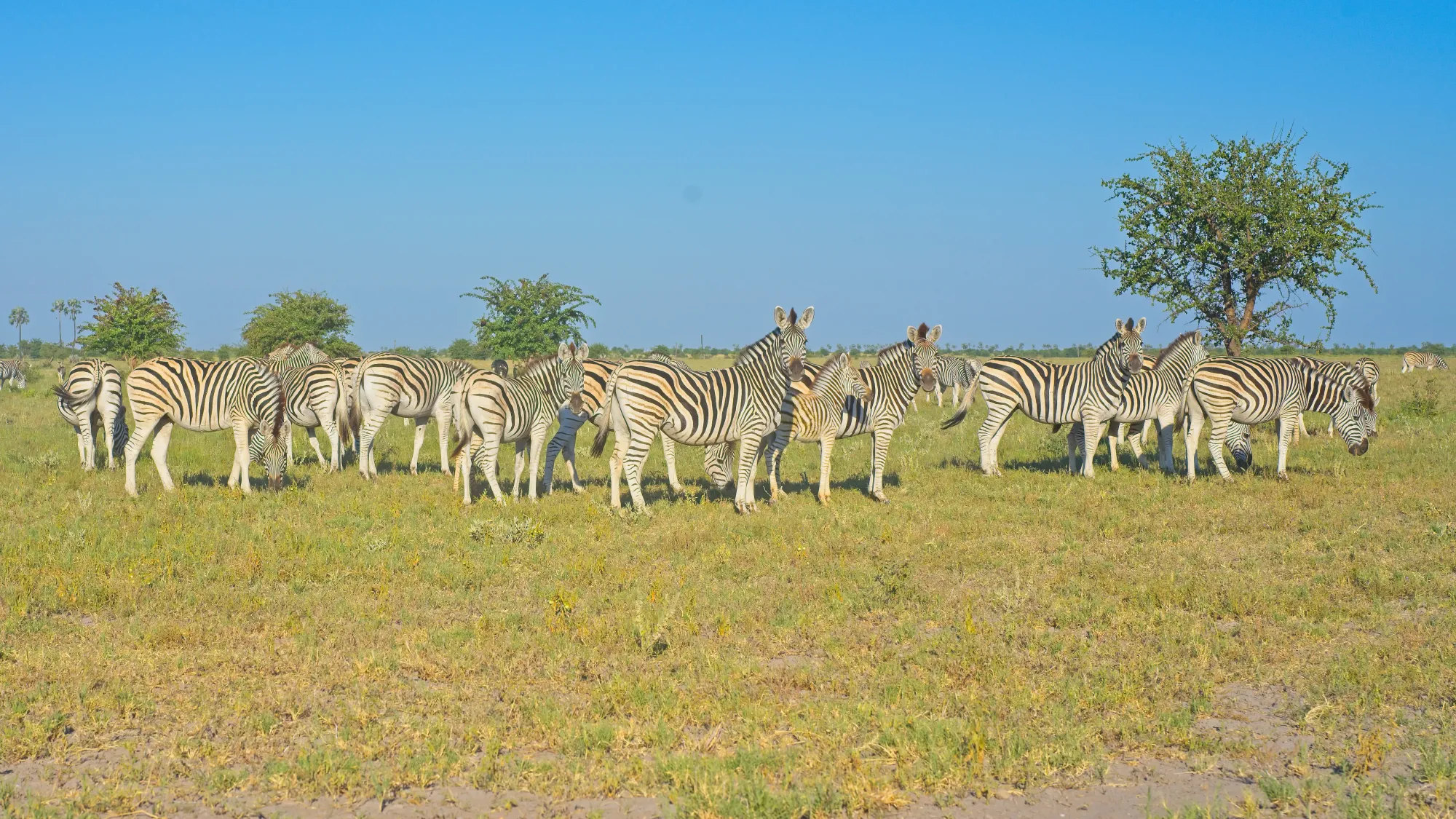
We knew how many zebras were supposed to be migrating, but it was unbelievably cool to actually get to see so many. We must have come across thousands. Their herds just kept going, they extended all across the park. It would have been difficult to avoid finding them. They were thankfully quite entertaining to watch. When our truck rolled past them, their heads would jerk up and they would stare at you straight on – their head turning into a narrow length of nose and eyes with flickering ears.
If we had stopped the truck and needed to restart the engine, the abrupt rumbling would startle them and their legs would get a video-game-esq power up as they scrambled away, dashing back far enough to realize we were not chasing them. At the watering hole, while adults sipped and took turns laying down to cool off by rolling in the dirt, the colts would play with one another. The young zebras and the baby wildebeest took turns chasing each other like a dog with “the zoomies”. Botswana will forever be special to us because of this experience; but, that is not the only marvelous animal encounter we had here. For us, another important part of coming to the Kalahari Desert was the chance to see meerkats.
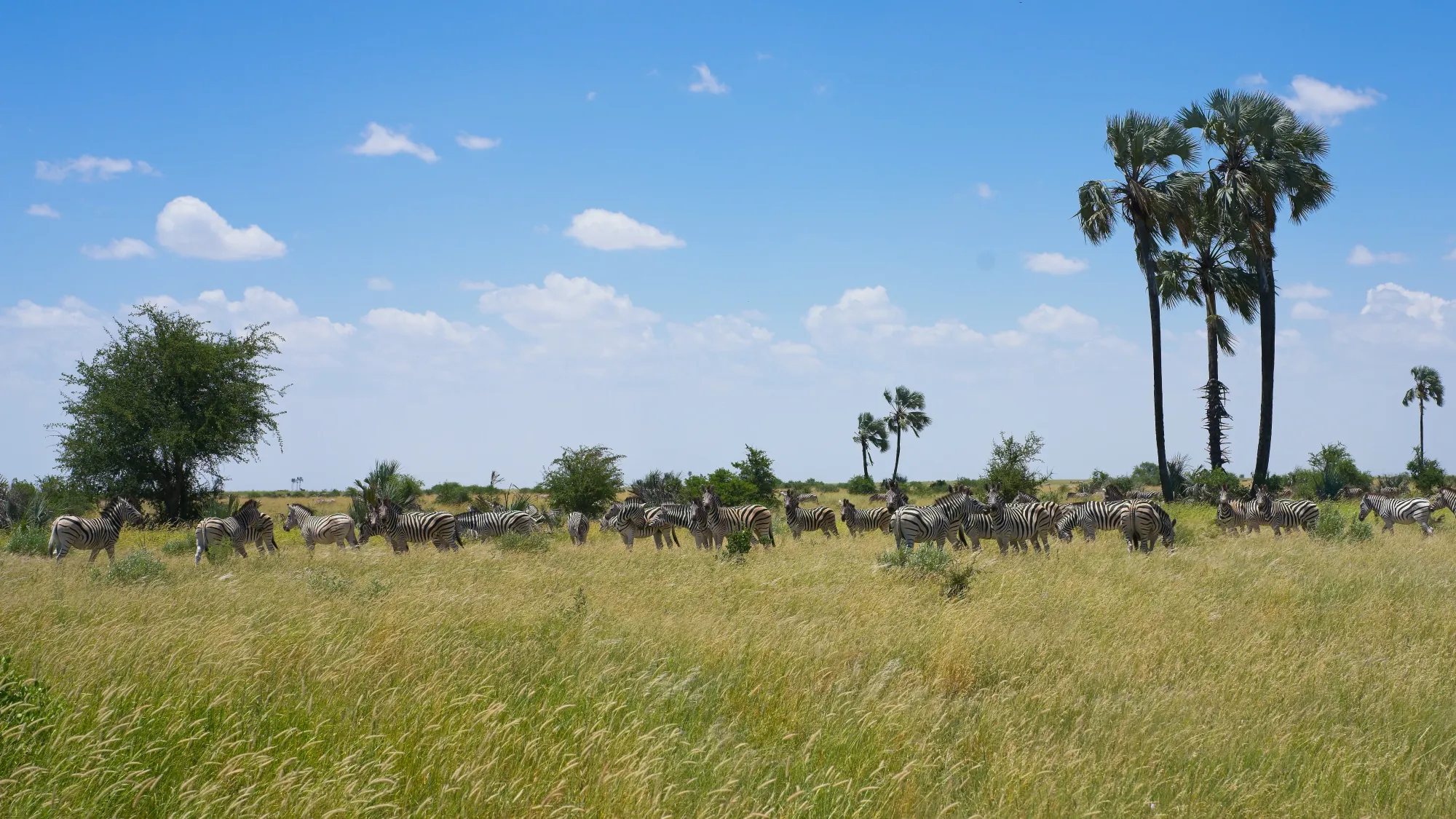
These meerkats are native to southern Africa and most live within the Kalahari Desert. They are famously skittish; however, some colonies live close to particular camps. Our camp was one such location. The colony nearest to them has, over the years, become habituated. This means that while they are still wild animals, they are more comfortable with the presence of humans. This fun development allows tourists like ourselves, to get close to the colony without scaring them – which is exactly what we did.
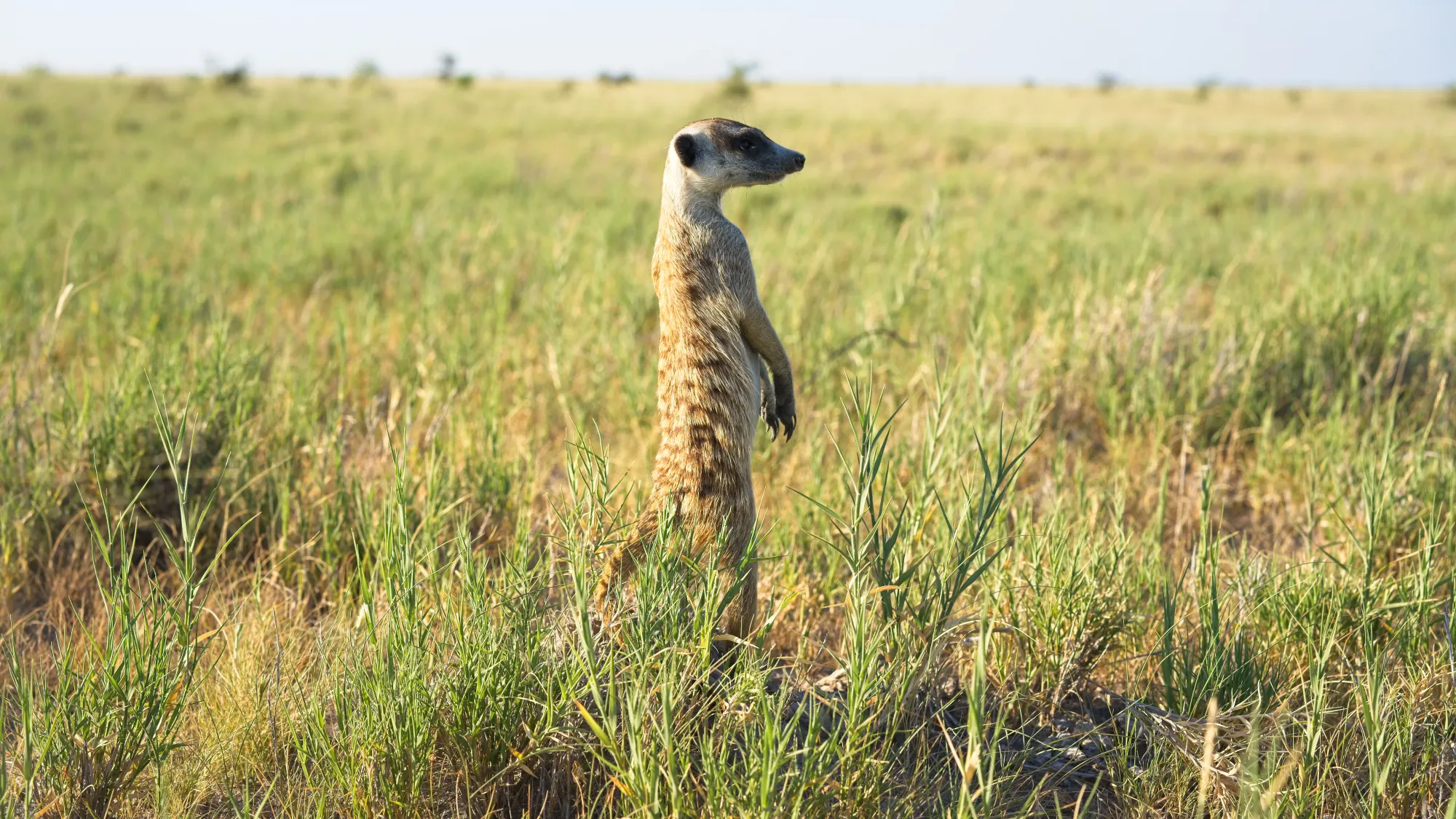
We spotted them as soon as our truck pulled up recognizing their little brown tails standing straight up as they scurried across the plains. When we approached one rose on its hind legs, then another, and before we knew it there were maybe fifteen meerkats all looking at us. Then, at some silent signal, they all dropped on all fours to race off again. We walked with them as they darted from spot to spot, occasionally pausing to scratch at the dirt before quickly taking off again.
One of the meerkats ran directly over Mr. Wanderer’s feet, articulating how comfortable they were with us. We followed the critters until the colony found an opening in the brush that suited them. Then the running stopped and the serious digging began. The whole family tucked in for a meal. The meerkats have long claws, so they used their back legs to anchor themselves while their front paws heaved chunks of dusty dirt out of their way as they searched for insects and the occasional worm. Most of the meerkats were adult-ish aged, but there was one young pup. This baby became rather vocal when it was time to eat, chirping at its elders and demanding snacks. The older meerkats took turns, when they found something delicious bringing it over to the baby to shut him up. It only worked for the few seconds it took him to chow down on his worm before he started back up with the whining again.
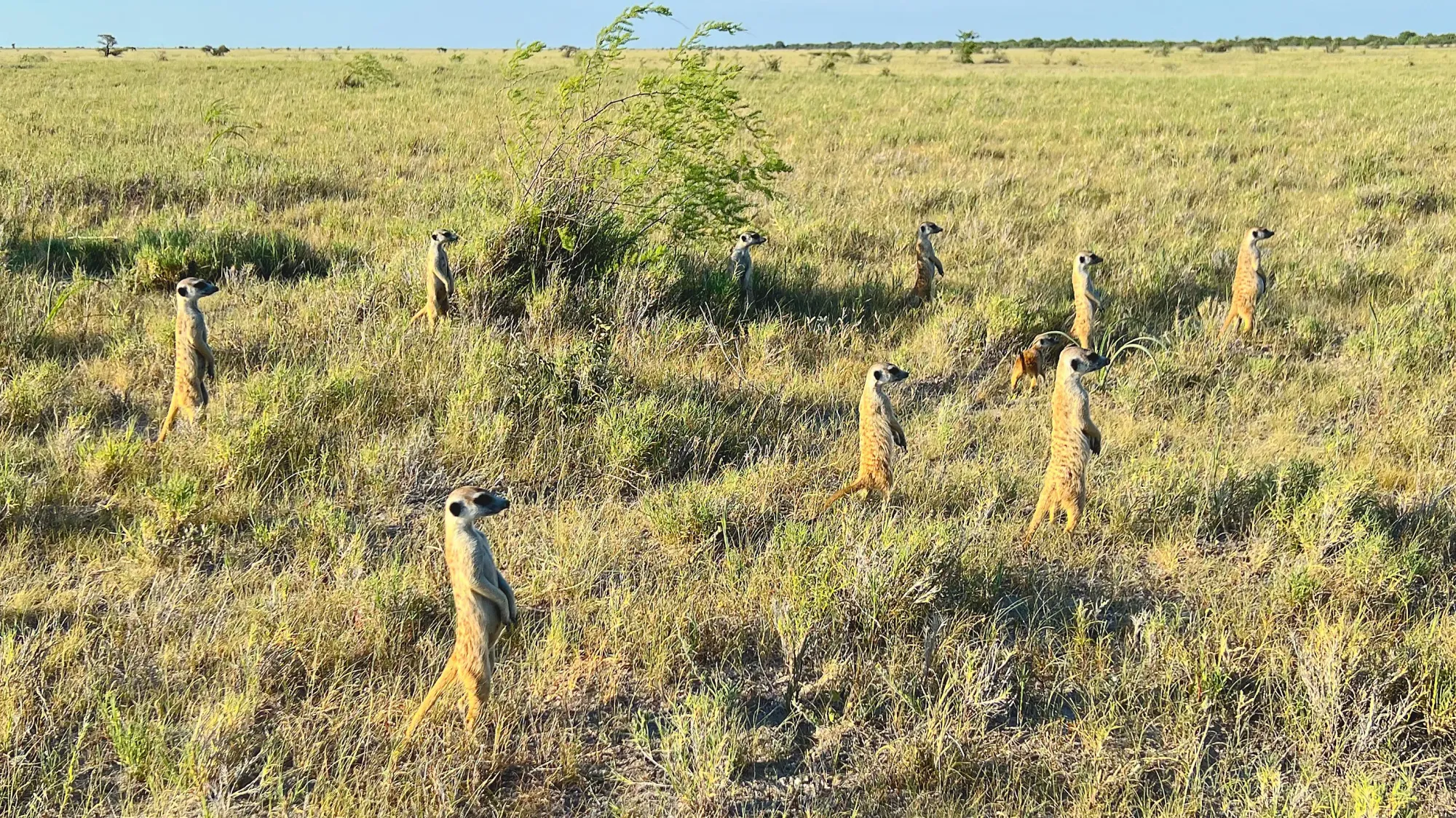
The meerkats work well together, each rotating through who is digging for grubs and who is keeping watch for predators or enemies. This worked to our advantage and gave us one of the coolest parts of this encounter. Meerkats are not tall creatures, so when they keep watch they often sit back on their hind legs or crawl on top of a log or stone. They are pretty indiscriminate about what they will crawl on if it gives them a leg up.
So, Mr. Wanderer and I lay down on the earth directly next to a meerkat. We did not move, we barely spoke. Slowly, a meerkat laid its paws on my leg as if testing the ground. Then it crawled up, using the slope of my back to get a slightly higher view. I must have held very still because my back was not enough for this little sentinel, and he scrambled up over my shoulder onto the top of my head. I held my breath as his head pivoted from left to right keeping watch. And it was a good thing he did because our little soldier spotted an enemy and whooped out a warning call before pushing against and launching off my head and heading for a nearby bush – tail standing straight up.
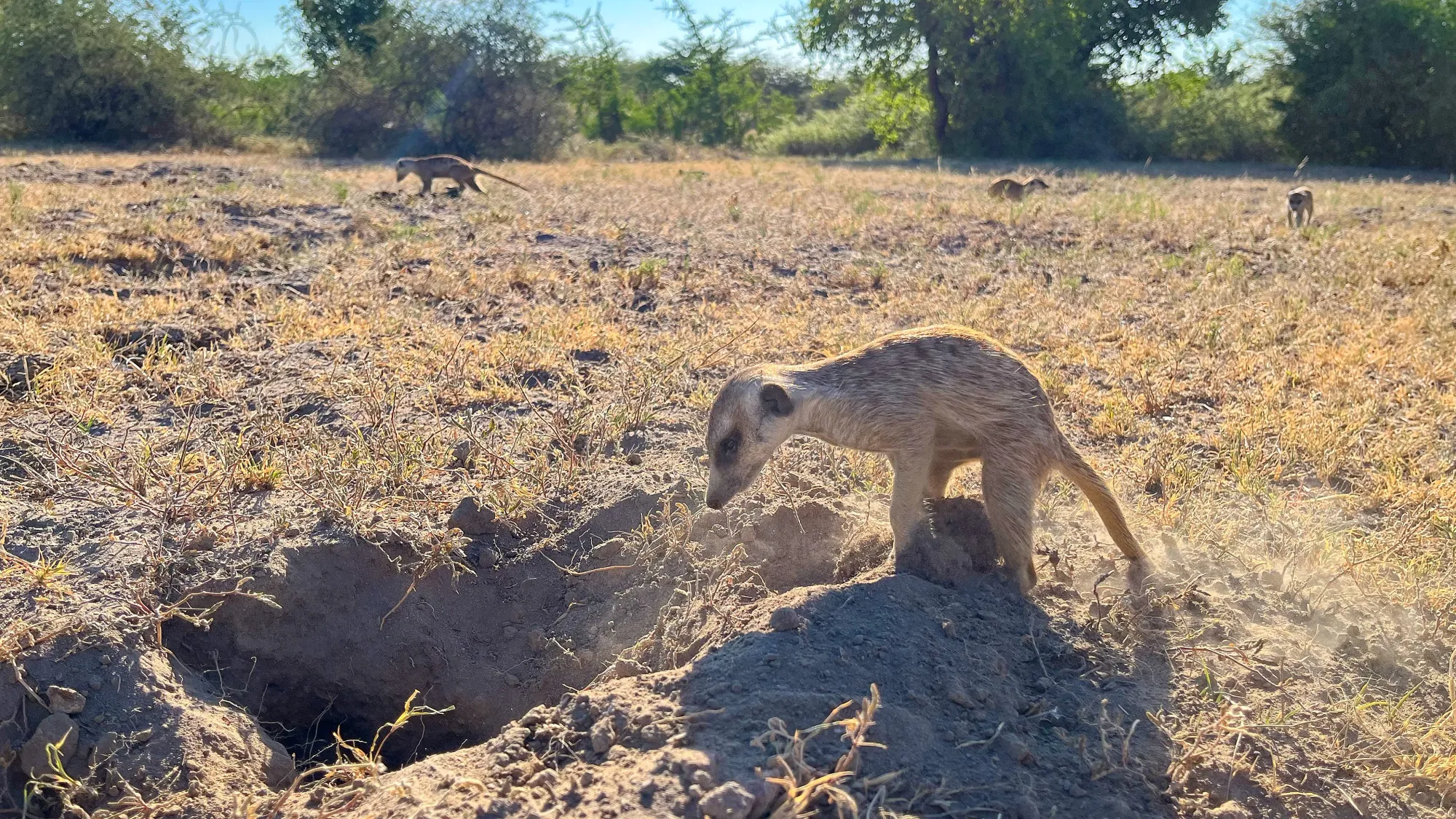
As someone who grew up watching the TV show Meerkat Manor, it was a childhood dream we fulfilled today. The whole visit to Botswana has been amazing. We spent time off work, interacting with nature, and engaging directly with wildlife completely unfamiliar with what we have back home. We loved our time here and are sad to be moving on. Our next stop though is an exciting one. This next nation is home to Mosi-oa-tunya or “the smoke that thunders” – any guess where we are off to next?
